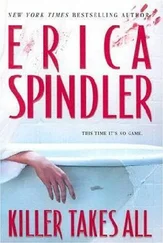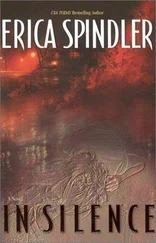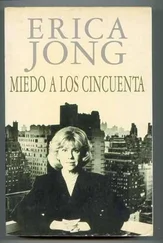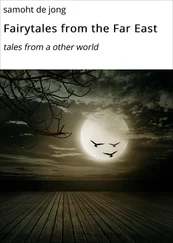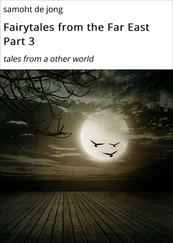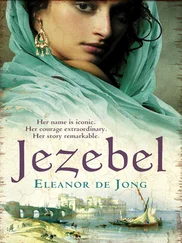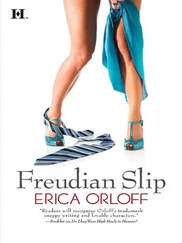“I guess… but the curiosity isn’t exactly killing me. Besides, I have time…”
“You’re almost thirty. You don’t have as much time as you think.”
“Oh, God,” I said, “you really can’t stand anyone to do anything but what you’ve done. Why do I have to copy your life and your mistakes? Can’t I even make my own damned mistakes?”
“What mistakes?”
“Like bringing up your children to think they’re Catholics, like lying about your religion, like denying who you are…”
“I’ll kill you!” Randy shrieked, coming at me with her arms raised. I ducked into the hall closet as I had so many times in childhood. There were days when Randy used to beat me up regularly. (At least if I have kids I’ll never make the mistake of having more than one. Being an only child is supposed to be such a psychological hardship, but it was all I ever wished for as a child.)
“PIERRE!” I heard Randy Screaming outside the door. I turned the lock and pulled the light cord. Then I backed into my mother’s sable coat (smelling of old Joy and stale Dioris-simo) and sat beneath it cross-legged among the boots. Above me were two more racks of coats going up high into the ceiling. Old fur coats, English children’s coats with leather leggings, ski parkas, rain capes, trench coats, autographed slickers from our camp days, school blazers with name tapes in the necks and forgotten skate keys in the pockets, velvet evening coats, brocade coats, polo coats, mink coats… thirty-five years of changing fashions and four grown daughters… thirty-five years of buying and spending and raising kids and screaming… and what did my mother have to show for it? Her sable, her mink, and her resentment?
“Isadora!” It was Pierre now. He rapped at the door.
I sat on the floor and rocked my knees. I had no intention of getting up. Such a lovely smell of mothballs and Joy.
“Isadora!”
Really, I thought, sometimes I would like to have a child. A very wise and witty little girl who’d grow up to be the woman I could never be. A very independent little girl with no scars on the brain or the psyche. With no toadying servility and no ingratiating seductiveness. A little girl who said what she meant and meant what she said. A little girl who was neither bitchy nor mealy-mouthed because she didn’t hate her mother or herself.
“Isadora!”
What I really wanted was to give birth to myself-the little girl I might have been in a different family, a different world. I hugged my knees. I felt strangely safe there, under my mother’s fur coat
“Isadora!”
Why did they have to keep rushing me and trying to cram me into the same molds that had made them so unhappy? I would have a child when I was ready. Or if I wasn’t ever ready, then I wouldn’t. Was a child any guarantee against loneliness or pain? Was anything? If they were so happy with their lives, why did they have to proselytize all the time? Why did they insist that everyone do as they did? Why were they such goddamned missionaries?
“Isadora!”
Why did my sisters and my mother all seem to be in a conspiracy to mock my accomplishments and make me feel they were liabilities? I had published a book which even I could still stand to read. Six years of writing and discarding, writing and changing, trying to get deeper and deeper into myself. And readers had sent me letters and called me in the middle of the night to tell me that the book mattered, that it was brave and honest, that I was brave and honest. Brave! Here I was in a closet hugging my knees! But to my family I was a failure because I had no children. It was absurd. I knew it was absurd. But something in me repeated the catechism. Something in me apologized to all the people who complimented my poems: something in me said: “Oh but remember, I have no children.”
“Isadora!”
Almost thirty. Strangers sometimes take me for twenty-five, but I can see the relentless beginnings of age, the beginnings of death, the gradual preparation for nonexistence. Already there are light furrows in my forehead. I can spread them with my fingers, but they fall back into creases immediately. Under the eyes, a fine network of lines is beginning: tiny canals, the markings of a miniature moon. In the corners of my eyes are one, two, three fine lines, as if made with a Rapidograph pen using invisible ink. Hardly perceptible-except to the artist herself. And the mouth is more set in its ways than it used to be. The smile takes longer to fade. As if aging were, above all, rigidity. The jetting of the face into prearranged patterns; a faint foreshadowing of the rigidity which comes after death. Oh the chin is still firm enough… but isn’t there a fine, almost invisible chain around the midpoint of the neck? And the breasts are still high, but for how long? And the cunt? That will be the last to go. It will still be going strong when nobody wants the rest of me at all.
It’s funny how in spite of my reluctance to get pregnant, I seem to live inside my own cunt. I seem to be involved with all the changes of my body. They never pass unnoticed. I seem to know exactly when I ovulate. In the second week of the cycle, I feel a tiny ping and then a sort of tingling ache in my lower belly. A few days later I’ll often find a tiny spot of blood in the rubber yarmulke of the diaphragm. A bright red smear, the only visible trace of the egg that might have become a baby. I feel a wave of sadness then which is almost indescribable. Sadness and relief. Is it really better never to be born?
The diaphragm has become a kind of fetish for me. A holy object, a barrier between my womb and men. Somehow the idea of bearing his baby angers me. Let him bear his own baby! If I have a baby I want it to be all mine. A girl like me, but better. A girl who’ll also be able to have her own babies. It is not having babies in itself which seems unfair, but having babies for men. Babies who get their names. Babies who lock you by means of love to a man you have to please and serve on pain of abandonment. And love, after all, is the strongest lock. The one that chafes hardest and wears longest. And then I would be trapped for good. The hostage of my own feelings and my own child.
“Isadora!”
But maybe I was already a hostage. The hostage of my fantasies. The hostage of my fears. The hostage of my false definitions. What did it mean to be a woman, anyway? If it meant being what Randy was or what my mother was, then I didn’t want it. If it meant seething resentment and giving lectures on the joys of childbearing, then I didn’t want it. Far better to be an intellectual nun than that.
But the intellectual nun was no fun either. She had no juice. And what were the alternatives? Why didn’t someone show me some alternatives? I looked up and grazed my chin on the hem of my mother’s sable coat.
“Isadora!”
“OK. I’m coming.”
I walked out of the closet and confronted Pierre.
“Apologize to Randy!” he demanded.
“What for?”
“For all the bitchy disgusting things you said about me!” Randy yelled. “Apologize!”
“I only said that you deny who you are and that I don’t want to be like you. Why does that require an apology?”
“Apologize!” she screamed.
“Why?”
“Since when do you care so fucking much about being Jewish? Since when are you so goddamned holy?”
“I’m not so holy,” I said.
“Then why are you making such an issue?” Pierre was now using his sweetest Middle-Eastern French accent.
“I never started this holy crusade to multiply the true believers-you did. I’m not trying to convert you to anything. I’m just trying to lead my own fucking life if I can manage to find it in all this confusion.”
“But Isadora,” Pierre wheedled, “that’s exactly it-we’re trying to help you.”
Читать дальше
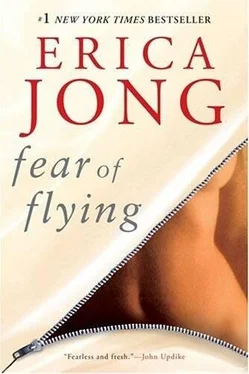
![Brian Jacques - [Flying Dutchman 01] - Castaways of the Flying Dutchman](/books/128851/brian-jacques-flying-dutchman-01-thumb.webp)


